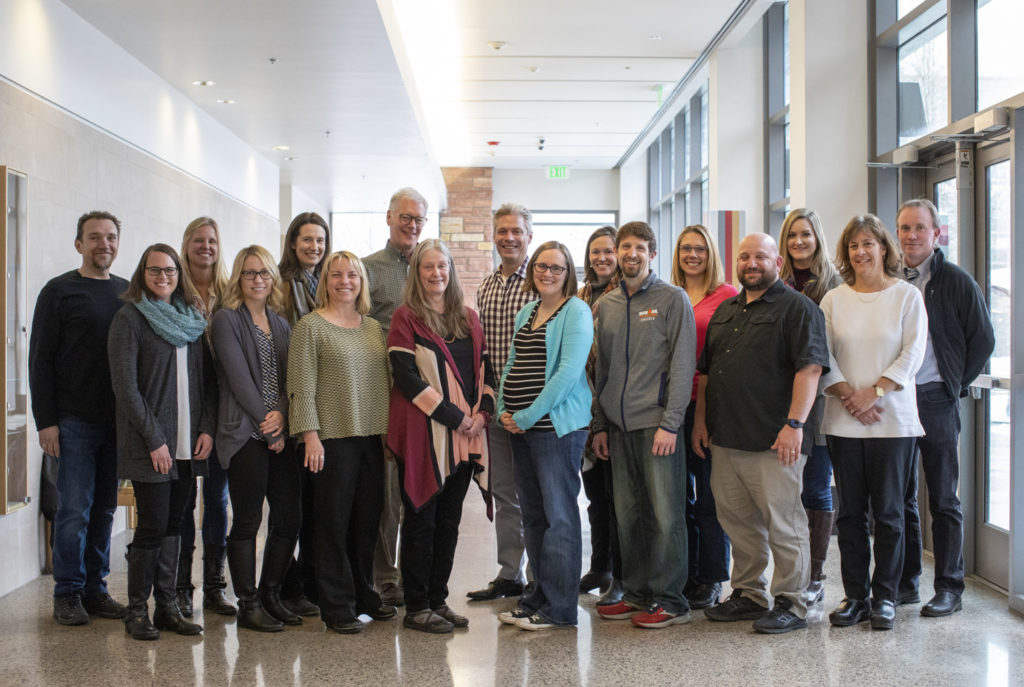
Prevention Research Center faculty affiliates.
Colorado saw its highest increase in drug overdose deaths from 2019 to 2020 with a 38 percent increase. Of the nearly 71,000 nationwide drug overdose deaths in 2019, over 70 percent of them involved an opioid.
In response to the opioid crisis, Colorado State University’s Prevention Research Center in the Department of Human Development and Family Studies has received a $350,000 award from the National Institute of Food and Agriculture – Rural Health and Safety to provide opioid prevention training and technical assistance to rural communities.
“The prevalence of opioid misuse in rural areas is high, and oftentimes, these communities are under-resourced to address the problem,” said Nate Riggs, executive director of the PRC and professor in the Department of Human Development and Family Studies.
This comes as states prepare to receive settlement funds from major drug distributors and a manufacturer for their role in the opioid epidemic. Colorado is expected to receive at least $300 million in settlement funds, which will go to communities, schools, organizations, and service providers. With the funds, these groups can then tap into the PRC services to combat the growing opioid issues in Colorado, specifically in rural areas.
“As a land-grant university, CSU and our Prevention Research Center are well positioned to provide opioid misuse prevention and intervention programs as well as training and technical assistance for substance use prevention,” said Riggs.
Advancing innovative strategies that reduce drug misuse

The two-year project, titled “Bringing Prosper to Colorado: Providing Opioid Prevention Training and Technical Assistance to Rural Communities,” will focus on three key areas: bringing evidence-based, family-focused interventions to the northwest region of Colorado (Routt and Moffat counties), scaling up a statewide prevention management team, and funding webinars as a statewide training tool for opioid prevention.
The services the PRC will bring to Colorado include prevention training and technical assistance, community presentations, community needs assessments and data-driven decision-making tools, and program development and evaluation.
“The PRC and our state management team can work with communities to identify needed programs and provide training on how to identify, select, implement, and evaluate those programs,” said Riggs. “This way, they are selecting programs with the most evidence to support their effectiveness.”
With the opioid settlement funds, communities can hire the PRC to assist them in these areas.
The state management team will be created by the PRC to support local communities. The team will be comprised of CSU researchers, CSU graduate students, extension professionals, and various community partners including Rise Above Colorado and Colorado Consortium.
Titled “Prevention Extension Cast,” the proposed webinars will feature various experts in the field and be open to the public. The first broadcast of the fall season will take place in October. More information will be available in the coming month on the Prevention Extension Cast website, which currently hosts previous broadcasts.
About the Prevention Research Center
The PRC, which is part of the Department of Human Development and Family Studies, was established in 2014 as a campus-wide, trans-disciplinary center committed to studying the development, implementation, and evaluation of effective and sustainable intervention programs that promote individual and family health and wellness throughout the lifespan. The center programs aim to reduce the risk for problems such as drug misuse, physical and mental health issues, violence, and problems of aging.
The Department of Human Development and Family Studies is part of CSU’s College of Health and Human Sciences.